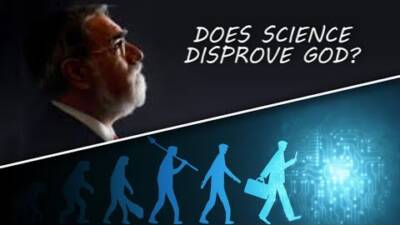Share
If God Is Good, Why Does Evil Exist? This is the central question in Judaism, and we should not be afraid to ask this question. It is not asked by heretics. It is not asked by people on the fringes of faith. It is ours by the greatest heroes that faith has ever known. Abraham asked,
“Hashofet kol ha’aretz lo ya’aseh mishpat?”
“Shall the Judge of all the Earth not do justice?”
Genesis 18:25
Moses asked,
“Lamah haray’otah la’am hazeh?”
“Why have You done evil, God, to this people?”
Exodus 5:22
Jeremiah says,
‘God, I know You always win every argument I have with you, but I still want to know why do the wicked prosper? Why do the righteous suffer?’
Habakkuk asked the same thing. The entire book of Job is dedicated to it. So that question is at the very heart of Judaism. And there are some questions to which the very greatest of the great don’t wish to know the answer.
One of the great rabbis of the 20th century, a totally remarkable individual called Rabbi Yekutiel Halberstam, the Klausenberger Rav, went through the Holocaust. He was in several concentration camps, including Auschwitz. During the Holocaust, he lost his wife and 11 children. All 11 children. The Klausenberger was an extraordinary man who vowed in the concentration camps, in this evil kingdom of death, that if he ever survived, he would dedicate the rest of his life to life itself, to healing life, to saving life. And he eventually brought his followers to Israel and built the Laniado Hospital in Netanya, dedicated to saving the life of whoever needs it, Jew, Christian, Muslim.
The Klausenberger was once asked, “After all you’ve been through, after losing your whole family, after surviving Auschwitz, do you have no questions of God?” And the Klausenberger replied, “Yes. I have questions. There are such deep questions that I know for sure that were I ever to ask them, God would invite me up to heaven to give me the answers Himself. And I prefer to be down here with the questions than down there with the answers.”
Now that is a very, very Jewish reply. If we found an argument that satisfied us as to why bad things happen to good people, we would be reconciled with bad things happening to good people. But because we have the question, and we don’t yet have the answer, we are not reconciled. And therefore we fight so that bad things do not continue to happen to good people.
That is why you will find Jews disproportionately represented among doctors fighting disease, economists fighting poverty, teachers fighting ignorance, lawyers fighting injustice. Why? Because we refuse to answer the question “why do bad things happen to good people”. We [instead] try and create a world in which fewer and fewer bad things happen. And that I think is the Jewish way. Sometimes faith lies in the question, not in the answer.
In partnership with TorahCafe (www.torahcafe.com), Rabbi Lord Jonathan Sacks recorded a series of short videos in May 2013, in answer to some of the most frequently asked questions of Judaism (and faith in general).
More FAQs

What was the Rambam controversy?
Question 13

What is Jewish leadership all about?
Question 12

Would the world be better without any religion?
Question 11

What is a Rabbi?
Question 10

What do Jews believe about the afterlife?
Question 8

What's the purpose of life?
Question 7

What does the term ‘Chosen People’ mean?
Question 6

If you could ask God one question, what would you ask?
Question 5

How can the belief in God be reconciled with science, especially evolution?
Question 4

How can the Torah be trusted?
Question 3

How do you know there is a God?
Question 2

What are the basic beliefs in Judaism?
Question One
